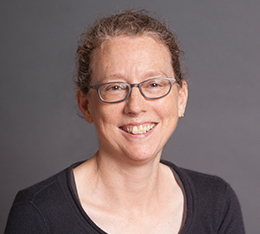Like virtually every other public institution, California’s judicial branch had to adapt quickly during the COVID-19 pandemic. For Chief Justice Tani G. Cantil-Sakauye, there was no question but that the courts had to remain open: “Justice cannot close,” she said. The only question was how best to proceed. In a conversation that ranged from diversity in the courts to criminal justice reforms to funding for the judicial branch, the pandemic was front and center.
As the pandemic lockdown began, adjustments had to be made at all levels of the judicial system: the Superior Courts (one in each county), the Courts of Appeal, the Supreme Court of California, and the Judicial Council—the state’s judicial policymaking body.
The superior courts had to accommodate a wide range of local health conditions and legal matters—statewide, there are millions of filings each year on cases ranging from family law to traffic violations to civil suits. As Cantil-Sakauye noted, some rural courts did not need to go remote at the beginning of the pandemic. But in the Bay Area and Southern California, she added, “everyone needed an emergency order to slow the caseload, so that we didn’t become a super spreader in the courts.”
A year and half later, almost all counties are operating in a hybrid mode—both in-person and remote. And while there is a backlog, particularly in large metropolitan areas, Cantil-Sakauye noted that, thanks to both remote access and a general slowdown at the beginning of the pandemic lockdown, it is “not as large as we thought it would be.”
The switch to remote operations was less complicated for the Courts of Appeal and the Supreme Court. Indeed, Cantil-Sakauye characterized the transition as “very easy” for the state Supreme Court, of which she is a member. “We have trust with each other,” she said. “We’re largely unanimous in our decisions because we speak, I think, primarily to clarify the law.”
For Cantil-Sakauye, the pandemic has shown that while in-person access is “the gold standard,” many people prefer remote access. “During the pandemic,” she said, “we learned that justice through remote technology increased access, particularly in family law, juvenile delinquency, and juvenile dependency.” For example, family members who live out of state can now join in, and those involved in domestic violence cases do not have to be in the same room. “We hope we can build on that,” she added, “because we have seen that choice matters and remote access works.”
PPIC is a nonpartisan, nonprofit organization. PPIC does not take or support positions on any ballot measure or on any local, state, or federal legislation, nor does it support, endorse, or oppose any political parties or candidates for public office. Any opinions expressed by event participants are theirs alone and do not necessarily reflect any position of the Public Policy Institute of California.
PPIC’s Speaker Series on California’s Future invites thought leaders and changemakers with diverse perspectives to participate critically, constructively, and collaboratively in public conversations. The purpose is to give Californians a better understanding of how our leaders are addressing the challenges facing our state.

